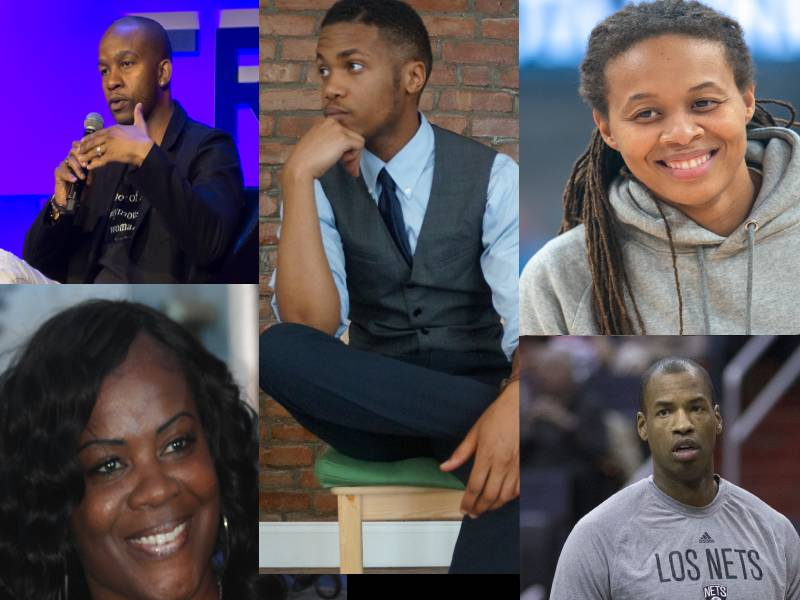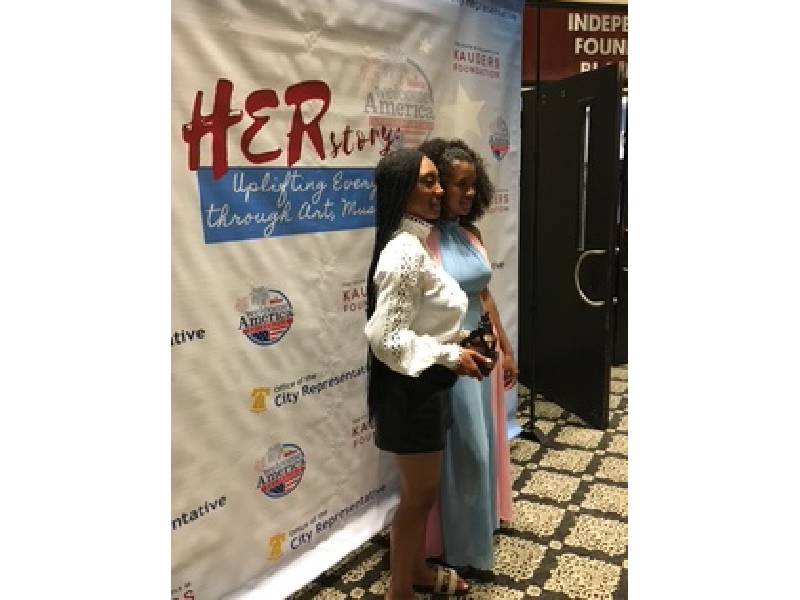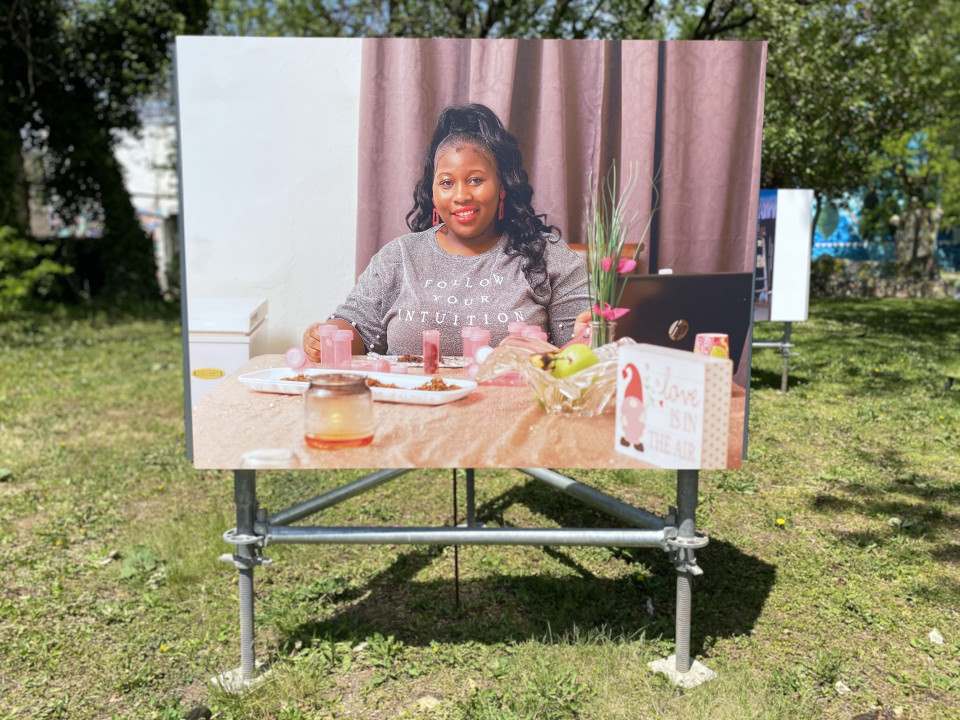Sexuality and sports are inextricably linked. By and large, LGBT athletes want to be remembered for their accomplishments rather than their sexual orientations. Their unapologetically out-and-proud status provides much-needed exposure for Black voices in our LGBTQ community. Therefore, let us honor their bravery and athletic careers in this article.
Wade Davis II
Wade Davis II, a former NFL cornerback, came out as openly homosexual in 2012, nine years after he retired from professional football. Davis was born in Little Rock, Arkansas, and earned a Bachelor of Science in Business Administration from Weber State University in Ogden, Utah. Davis was a member of the Tennessee Titans, Washington Redskins, and Seattle Seahawks, as well as two NFL Europe clubs. Davis started working with the NFL in 2014 to guarantee that LGBT players enjoy a safe and accepting environment. According to HuffPost, Davis served as an official LGBT surrogate for President Obama during the 2012 presidential election and is presently a HeForShe UN Women Ambassador and a US State Department Speaker Specialist. Davis continues to travel nationally and globally in various capacities to address problems of gender, racism, sexual orientation, and class to promote diversity and inclusion at all levels of amateur and professional athletics. Davis co-founded the YOU Belong Initiative with Darnell Moore in 2013, an organization that provides comprehensive sports training and leadership development clinics to LGBTQ and straight-allied adolescents. Davis also founded the Speakers’ Collective as part of YOU Belong, which offers assistance, marketing, and a feeling of community for LGBTQ professionals of color. Davis was awarded an honorary Doctor of Public Service degree by Northeastern University in 2014 in recognition of his leadership and continued efforts to combat homophobia and sexism in sports.

Figure 1 – Portrait of Wade Davis II. Source – Google
Seimone Augustus
Seimone Augustus is well-known for her basketball career, having played for the Minnesota Lynx and the United States of America in three straight Olympic Games. Augustus has been a vocal champion for marriage equality and LGBTQ rights in sports after coming out in 2012.
Augustus’s career as a player includes being a pioneer of women’s basketball, a three-time Olympic gold medalist, and the cornerstone of the Minnesota Lynx’s four-time championship team, one of basketball’s great dynasties. Augustus seemed to be destined for greatness from the start. When she was a freshman in high school, she was featured on the cover of Sports Illustrated for Women – a momentous occasion for a prep star – in an article headed “Is She the Next Michael Jordan?” She speaks freely about her journey of coming to terms with her sexuality at a young age in the hope that LGBTQ youngsters can feel more secure in their own identities. In 2016, the Lynx’s players, including Augustus, started openly expressing their support for the Black Lives Matter movement. They spoke out against police brutality and wore shirts with the movement’s motto during warm-ups in the aftermath of the police deaths of Philando Castile and Alton Sterling before Colin Kaepernick made headlines by kneeling during the national anthem at NFL games for the same cause. According to the New York Times, Augustus is working as an assistant coach for the Los Angeles Sparks to help her players find the same serenity and freedom on the court that she experienced, as well as ways to utilize their power to fight for themselves and their communities outside of basketball.

Figure 2 – Portrait of Seimone Augustus. Source – Google
Jason Collins
Jason Collins is a former NBA player who played for 13 seasons. He came out publicly as gay in 2013, becoming the first openly gay athlete to play in any of the four major professional sports leagues in the United States. According to WBUR, Collins did not inform a single person until 2011 – not a teammate, a buddy, or even his NBA-playing twin brother, Jarron. However, during the 2011 NBA lockout, Collins was thrust into a life without basketball. That is the point at which things began to shift. As a result, Collins began coming out to his closest friends. He found himself in Boston with the Celtics that autumn and decided to take a chance. In retrospect, it may have been a significant one. He picked jersey No. 98 to commemorate the year 1998, when a homosexual college student named Matthew Shepard was murdered in Laramie, Wyoming. When the Celtics equipment manager inquired as to why Collins requested No. 98, he said that he liked to foul a lot and wanted to annoy officials. Collins chose Sports Illustrated as his platform, which would include a first-person narrative, and he went home to Los Angeles immediately after the season’s conclusion for an interview. Collins revised the first draft and was informed by the Sports Illustrated staff that the article would be published online on Monday morning at 11:30 EST/8:30 PST. Collins received congratulatory calls from Oprah Winfrey and then-President Barack Obama on consecutive days. Since then, Collins has been an outspoken champion for LGBTQ equality, acting as an example to subsequent generations of LGBTQ athletes and trailblazers.

Figure 3 – Portrait of Jason Collins. Source – Google
Kye Allums
Allums was the first openly transgender person to compete in NCAA Division I athletics as a member of the George Washington University women’s basketball team. Allums was a tomboy as a youngster and often claimed to be a guy despite being born a biological girl. Allums started telling several of his teammates during his second year of college that he was a guy trapped inside a woman’s body. According to Out Sports, Allums started correcting everyone who used female pronouns while addressing him; everyone, that is, except his head coach. Allums was most apprehensive about informing Bozeman. However, in June, Bozeman followed Allums down in his dorm room to discuss another matter. When Allums ultimately brought up his transition, the meeting devolved into an unpleasant one. Allums said as plainly as he could that he was and had always been a guy. When Bozeman inquired if God made a mistake, Allums was at a loss for words. It was a disaster. However, the tone of the talk shifted at some point throughout the chat. “The George Washington University women’s basketball program, including myself, support Kye’s freedom to make this choice,” Bozeman said. Through public speaking engagements and mentoring of LGBTQ kids, Allums continues to fight for the transgender community. He speaks at high schools and universities around the nation, telling his experience, offering guidance on how to deal with bullies, and educating the public about transgender concerns. Allums was featured in Laverne Cox’s MTV documentary, The T Word, which delves into the lives of adolescent transgender people. Additionally, he founded the “I Am Enough” initiative, which invites members of the LGBTQ community to share their experiences so that those dealing with similar challenges may not feel so alone.

Figure 4 – Portrait of Kye Allums. Source – Google
Sheryl Swoopes
Sheryl Swoopes, a real pioneer in women’s basketball, has had a greater influence on the women’s game than anybody else. Her accomplishments are indisputable. Swoopes was a dominant force throughout her career, becoming the league’s first female signee, a three-time WNBA MVP, an Olympic gold medalist, and an NCAA and WNBA champion. According to Legends of Basketball, the WNBA’s rise has been apparent since Swoopes entered the league in 1997. The WNBA had a 36 percent rise in viewership among people aged 18-49 this season, a 29 percent increase among males in that age bracket, and a 50 percent increase among women. However, more significant than the increase in viewing has been the increase in the number of female players. Swoopes is most interested to watch how the current generation of gamers is using this burgeoning platform to affect the greater good. Swoopes acknowledged her lesbian relationship with Scott, who was a Comets assistant coach, in 2005, nearly a year after her bankruptcy. Swoopes became somewhat of a beacon of light in the LGBT community in the years after her declaration. She spoke at events, became an advocate for Olivia Cruises, and was one of history’s first “out” female athletes. Swoopes’ fearlessness and ease with her relationship at the time was undoubtedly an inspiration to as many (if not more) people as her on-court abilities.

Figure 5 – Portrait of Sheryl Swoops. Source – Google

Anand Subramanian is a freelance photographer and content writer based out of Tamil Nadu, India. Having a background in Engineering always made him curious about life on the other side of the spectrum. He leapt forward towards the Photography life and never looked back. Specializing in Documentary and Portrait photography gave him an up-close and personal view into the complexities of human beings and those experiences helped him branch out from visual to words. Today he is mentoring passionate photographers and writing about the different dimensions of the art world.





